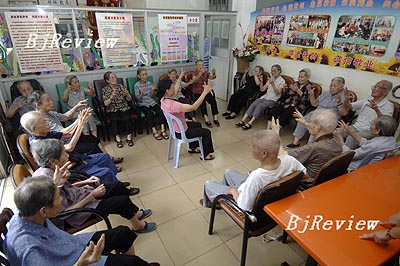|

Consumers Become Telecom Victims
On the surface, discount service packages launched by various Chinese telecom carriers are the result of competition within this industry, yet the competition is quite limited and the packages are actually designed to “net” consumers. If there were full-on competition, the companies would have tried to win consumers by directly cutting charges, rather than frequently unveiling new packages.
China only has a few telecom service providers. In this context, the so-called free choice is subject to the limited services offered by the limited companies.
At first, discount service packages were encouraged by the industry regulator to lower the burden on their subscribers and to expand the user pool of the entire telecom market. But, instead of consumers, telecom operators have benefited more from the practice as many packages actually enlarge the operators’ profit margins through imposing unattainable conditions on proposed discounts. It’s well known that the huge profits made by telecom companies through these packages will never find their way to refund consumers.
If actions are only taken to rectify the service package market, it’s quite possible that the Ministry of Information Industry’s clean-up regulations won’t catch up with telecom companies’ new tricks. In the end consumers will have to pay more and more. The only solution is to scrap all price controls by the government.
Market News
Adding Shine to Golden Years
Chishui City in southwest China’s Guizhou Province has recently embarked on a “filial piety project,” with the aim to help local seniors with comfortable accommodation, medical care and a cultural life and to provide the poor elderly with financial assistance. The government also worked out supporting regulations, encouraging local residents to contribute money to this initiative.
China is moving toward an “aging society” and how to make senior citizens’ late years comfortable is among top concerns. Currently, the elderly mainly rely on their children for support, while nursing homes and similar welfare institutions are only supplements. Given the growing number of aging population and shrinking Chinese households due to the country’s one-child policy, most families find it difficult to support the elderly by totally depending on themselves. Society as a whole needs to make more efforts to cope with various challenges resulting from the graying trend.
The smooth implementation of the “filial piety project” shows promise for Chinese to mobilize social resources and encourage more volunteers to help the elderly, especially those poor and lonely people, to enjoy a comfortable life in their late years.
China Youth Daily
Conference Corruption
A common one-day business conference, attended by 300 people, may cost 40,000 yuan (about $5,300) worth of consumables, such as pencils, towels, mineral water, notebooks, etc. More surprisingly perhaps, every year, 60 four-star hotels in Shanghai reportedly spend 3 million yuan (about $400,000) on these disposable items.
If such little things as pencils and towels can sap 3 million yuan, the large amount of fruit, wine and gifts and even entertainment activities, which are totally unrelated to conferences in the general sense, but are a reality, are likely to guzzle much more.
Moreover, some government departments or companies will only select luxury hotels or famous scenic spots for conferences. No matter how much the participants spend, as long as they can be invoiced as routine expenses, conference sponsors will cover them. Some corrupt officials even exchange the large amount of hotel invoices for cash-another source of illegal income.
The fact that numerous conferences have become a hotbed of corruption has already aroused indignation among the public. It’s necessary for auditing and discipline inspection departments of the Communist Party of China to strengthen supervision over expenditures at various conferences.
Guangzhou Daily
Limp Lamp Sheds Little Light
Energy conservation is crucial for China’s sustainable development. According to statistics from the National Development and Reform Commission, illumination cost 12 percent of the total power demand. If all the common incandescent lamps are replaced by energy-saving lamps, 60 billion kwh of power can be saved annually, equal to the annual power generation of the Three Gorges Hydroelectric Station.
However, energy-saving lamps are not widely used in China, because this kind of illumination is too expensive, about a dozen times more than incandescent lamps. Worse still, a recent report of the China Consumers’ Association says that some energy-saving lamps made in China have not only poor illumination but also a short lifespan, so they cannot help reduce electricity fees.
Given the serious energy shortage today, energy-efficient lighting is very helpful. Producers are obliged to improve the quality of energy-saving lamps and cut the prices of their products. Meanwhile, the government should consider offering favorable policies to those enterprises, such as tax breaks, to encourage low prices.
Dazhong Daily | 